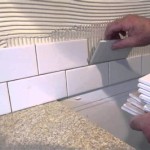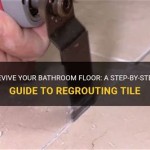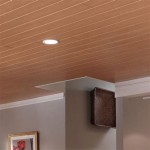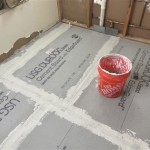How to Tile a Cement Basement Floor After a Flood
Flooding in a basement can cause significant damage, leaving behind a damp and potentially hazardous environment. While the immediate concern might be addressing the water damage, the long-term solution often includes restoring the basement floor. Tiling a cement basement floor after a flood offers a durable and aesthetically pleasing finish, transforming the space into a functional and comfortable area. This comprehensive guide will delve into the essential steps involved in tiling a cement basement floor, ensuring a successful and professional outcome.
Prepare the Basement Floor
Before embarking on the tiling process, proper preparation of the basement floor is crucial. This step ensures a smooth and stable base for the tiles, preventing future issues such as cracks or uneven surfaces. The following steps should be undertaken:
- Assess the Damage: Carefully inspect the cement floor for any signs of water damage. Look for cracks, crumbling areas, or efflorescence (a white, powdery substance).
- Waterproof the Floor: Apply a waterproof membrane to the cement floor to prevent future moisture damage. This can be a liquid-applied membrane or a sheet membrane.
- Level the Floor: Use a self-leveling compound to fill in any uneven areas or cracks. This will ensure a smooth surface for the tiles.
- Prime the Floor: Apply a bonding primer designed for concrete floors. This helps the mortar adhere to the floor surface.
Tile Installation
Once the basement floor has been adequately prepared, the tiling process can begin. This involves carefully laying the tiles to create a visually appealing and durable floor. The following steps illustrate the process:
- Layout the Tiles: Use spacers to create a uniform gap between the tiles. This allows for grout to be applied later.
- Mix the Mortar: Follow the manufacturer’s instructions for mixing the mortar. The consistency should be similar to peanut butter.
- Apply the Mortar: Spread a thin layer of mortar on the floor, covering an area that can be tiled within 15-20 minutes.
- Install the Tiles: Gently press each tile into the mortar, ensuring they are level. Use a tile leveling system to ensure proper height.
- Clean Excess Mortar: Wipe away any excess mortar with a damp sponge.
- Let the Mortar Dry: Allow the mortar to dry completely before proceeding to the next step.
Grouting and Sealing
The final stages of tiling a cement basement floor involve grouting and sealing. These steps enhance the aesthetic appeal, protect the tiles, and prevent moisture penetration. The following steps outline the process:
- Apply the Grout: Fill the gaps between the tiles with grout using a grout float. Make sure the grout is even and flush with the tiles.
- Clean Excess Grout: Wipe away any excess grout with a damp sponge. Work quickly to prevent the grout from drying.
- Seal the Grout: Apply a sealant to the grout to protect it from moisture and stains. This will also help to prevent mold growth.
Additional Considerations
When tiling a cement basement floor after a flood, there are a few additional considerations to ensure a successful outcome:
- Ventilation: Ensure adequate ventilation in the basement to prevent moisture buildup. This can be achieved through windows, a dehumidifier, or a ventilation system.
- Tile Selection: Choose tiles that are suitable for use in damp or wet areas. Porcelain or ceramic tiles are typically recommended for basement floors due to their durability and water resistance.
- Professional Help: If you are unsure about any aspect of the tiling process, consult a professional for guidance.

Rotting Basement Floors Flooring Damaged By Rot Mold Water

Flooded Basement Floor Restoration And Remediation

My Basement Flooded Now What Ashworth Drainage

What To Know About Waterproofing A Concrete Basement Floor

Installing L And Stick Carpet Tiles On Concrete Diy Exquisitely Unremarkable

5 Ways Water Can Damage Your Tile Floors

Help My Basement Leaks When It Rains News And Events For Systems Inc

Self Leveling Concrete Preparing For Installation Tips

Best Flooring For Basements That Flood Try Waterproof Vinyl

How To Damp Proof Concrete Floors Permagard
Related Posts








